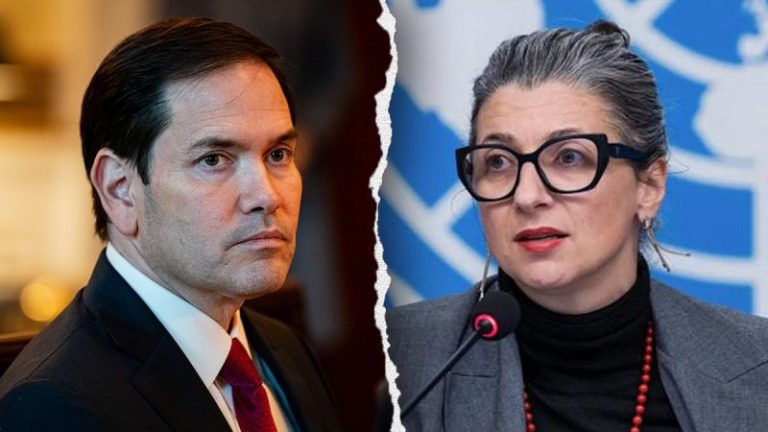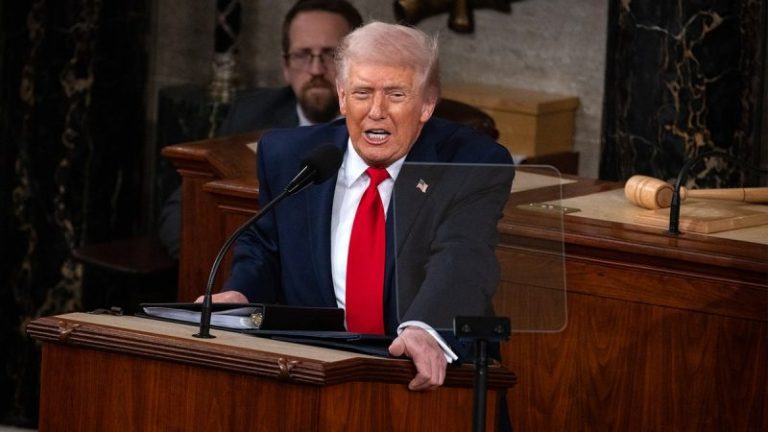Combined company is well-capitalized with an exceptional management team and portfolio of gold assets in the Eeyou Istchee James Bay region
Sirios Resources Inc. (TSXV: SOI,OTC:SIREF) (OTCQB: SIREF) (‘Sirios’) and OVI Mining Corp. (‘OVI’) are pleased to announce the completion of their previously announced business combination by way of a court approved plan of arrangement under the Business Corporations Act (British Columbia) (the ‘Transaction’). Under the Transaction, Sirios acquired all of the common shares of OVI (each, an ‘OVI Share’) outstanding immediately prior to the effective time of the Transaction, which resulted in OVI becoming a wholly-owned subsidiary of Sirios.
Following completion of the Transaction, each former holder of OVI Shares is entitled to receive 2.34 common shares of Sirios (each, a ‘Sirios Share‘) in exchange for each common share of OVI held immediately prior to the effective time of the Transaction.
Concurrent with the completion of the Transaction, Jean-Félix Lepage has been appointed Chief Executive Officer of Sirios, replacing Sirios founder, Dominique Doucet, who will transition to Executive Chairman and Head of Exploration. In addition, Sean Roosen and Laurence Farmer have joined the board of directors of Sirios (the ‘Board‘), adding deep Québec mining and capital markets expertise to the Sirios team.
Mr. Lepage has over 15 years of experience in mining and managing operations, projects, and development activities. Prior to becoming CEO of OVI, he was Vice-President of Projects at O3 Mining Inc., where he led the Marban Project though the study and development process. His past experience also includes several different operational roles at Newmont Corporation, including managing the underground operations at the Eleonore Mine. Mr. Lepage obtained his Bachelor of Mining Engineering from Université Laval and holds a college technical degree in mineral processing from CEGEP de Thetford.
Jean-Félix Lepage, incoming CEO of Sirios, stated: ‘I am honoured to lead Sirios Resources as we enter this exciting new chapter. The combination of Sirios and OVI creates a stronger, well-capitalized company with an exceptional portfolio of gold assets in the Eeyou Istchee James Bay region. I look forward to working with our talented team and newly strengthened board to advance our exploration and development programs and deliver value for our shareholders.’
Dominique Doucet, former CEO of Sirios, stated: ‘After founding and leading Sirios for many years, I am proud to see the company take this significant step forward. This transaction brings together two complementary teams and asset portfolios, strengthening our position in the James Bay gold camp. In my new role as Executive Chairman and Head of Exploration, I remain deeply committed to Sirios and look forward to focusing my efforts on advancing our exploration programs and supporting Jean-Félix and the team in building on the foundation we have established.’
Board of Directors
The Board is led by Executive Chairman Dominique Doucet, and now includes Sean Roosen and Laurence Farmer, as well as Robert Ménard, Colinda Parent and Guy Le Bel. Luc Cloutier has resigned from the Board. Sirios would like to express its sincere gratitude for his years of service.
Dominique Doucet, former CEO of Sirios, stated: ‘On behalf of the Board, I would like to recognize and express my profound gratitude for Luc’s unwavering commitment and dedication to Sirios since its founding in 1994. Luc’s contributions have left an lasting mark on Sirios, and his legacy will continue to shape our path forward. On behalf of the entire Sirios team, we extend our heartfelt appreciation and wish him every success in his future endeavours.’
Mr. Roosen is the founder and Executive Chairman of Osisko Development Corp., and former CEO of OR Royalties Inc. As founder, President, Chief Executive Officer, and Director of Osisko Mining Corporation, Mr. Roosen was responsible for developing the strategic plan for the discovery, financing, and development of the Canadian Malartic mine. Recognized as one of the ‘Top 20 Most Influential Individuals in Global Mining,’ in 2017, he brings unmatched industry vision and strategic leadership.
Mr. Farmer is the General Counsel and VP Strategic Development of Osisko Development Corp. and the Chief Executive Officer of Electric Elements Mining Corp., prior to which he was Senior Counsel of OR Royalties Inc. Prior to joining the Osisko Group, Mr. Farmer worked in investment banking at RBC Capital Markets in London and, before that, practiced as a corporate lawyer with Norton Rose Fulbright LLP in London, England and Montréal, Canada, and brings strong transactional expertise and strategic insight into global resource development.
Information for Former OVI Shareholders
To receive the Sirios Shares to which they are entitled under the Transaction, former registered shareholders of OVI must complete, sign, date and return the letter of transmittal mailed to each OVI shareholder prior to closing. The letter of transmittal is also available on SEDAR+ (www.sedarplus.ca) under OVI’s issuer profile. Former shareholders whose OVI Shares are registered in the name of a broker, investment dealer, bank, trust company or other intermediary should contact that intermediary for assistance in depositing their OVI Shares and follow its instructions.
The Transaction was unanimously approved by shareholders of OVI at a special meeting held on February 18, 2026 (the ‘Meeting‘). Further information about the Transaction is set forth in the joint news release of Sirios and OVI dated December 11, 2025 and the management information circular prepared by OVI in respect of the Meeting which was mailed to shareholders of OVI and filed on SEDAR+ (www.sedarplus.ca) under OVI’s issuer profile.
OVI has applied to cease to be a reporting issuer under applicable Canadian securities laws.
Pursuant to the Transaction, Sirios will issue an aggregate of 131,905,594 Sirios Shares. All 1,866,000 options to purchase OVI Shares outstanding immediately prior to the effective time of the Transaction, whether or not vested, were exchanged for 4,366,440 options to acquire Sirios Shares, with an exercise price equal to approximately $0.05641 per Sirios Share, subject to rounding on the exercise thereof in accordance with the plan of arrangement and which expire on November 1, 2030.
OVI owns a portfolio of properties located in the James Bay region of Québec, including a 100% interest in the Corvet Est and PLEX gold projects. Certain of OVI’s properties are subject to royalties and contingent cash payments, which have been assumed indirectly by Sirios as a result of the Transaction.
Early Warning Disclosure
Prior to the completion of the Transaction, Sirios held no OVI Shares. Following the completion of the Transaction, Sirios holds all of the issued and outstanding OVI Shares. An early warning report will be filed by Sirios on SEDAR+ (www.sedarplus.ca) under OVI’s issuer profile in accordance with applicable securities laws. To obtain a copy of the early warning report, please contact the CEO of Sirios 438-454-5636 or info@sirios.com. Sirios’s head office is located at 1400 Marie-Victorin, Bureau 210, Saint-Bruno-de-Montarville, Québec, J3V 6B9.
Advisors and Counsel
Bennett Jones LLP acted as legal counsel to OVI in connection with the Transaction. Mills Dunlop Capital Partners acted as financial advisor to OVI.
Stein Monast LLP acted as legal counsel to Sirios in connection with the Transaction.
About Sirios Resources Inc.
Sirios Resources Inc. (TSXV: SOI,OTC:SIREF) (OTCQB: SIREF) (www.sirios.com) is a Québec-based mineral exploration company focused on developing its portfolio of high-potential gold properties in the Eeyou Istchee James Bay region of Canada.
For more information, please contact:
Sirios Resources Inc.
Jean-Félix Lepage, CEO
438-454-5636
info@sirios.com
www.sirios.com
OVI Mining Corp.
Jean-Félix Lepage, CEO
438-454-5636
jflepage@ovimining.com
www.ovimining.com
Cautionary Note Regarding Forward-Looking Information
This news release contains ‘forward-looking information’ within the meaning of applicable Canadian securities legislation. All statements, other than statements of historical fact, are forward-looking statements and are based on expectations, estimates and projections as at the date of this news release. Any statement that involves discussions with respect to predictions, expectations, beliefs, plans, projections, objectives, assumptions, future events or performance (often but not always using phrases such as ‘expects’, or ‘does not expect’, ‘is expected’, ‘anticipates’ or ‘does not anticipate’, ‘plans’, ‘budget’, ‘scheduled’, ‘forecasts’, ‘estimates’, ‘believes’ or ‘intends’ or variations of such words and phrases or stating that certain actions, events or results ‘may’ or ‘could’, ‘would’, ‘might’ or ‘will’ be taken to occur or be achieved) are not statements of historical fact and may be forward-looking statements.
In this news release, forward-looking statements relate to, among other things, statements regarding: the anticipated benefits of the Transaction, including potential synergies resulting from combining Sirios and OVI and the creation of a stronger, well-capitalized company; the enhanced portfolio of gold assets in the Eeyou Istchee James Bay region; the expected advancement of exploration and development programs; the ability to deliver value for shareholders; future exploration results and the potential for resource growth; the expectations for the combined entity’s board, management team and operations; the roles and responsibilities of management, including those of Mr. Lepage, Mr. Doucet, Mr. Roosen and Mr. Farmer; the filing of an early warning report and the ceasing of OVI’s status as a reporting issuer; and any other statements that are not historical facts.
Forward-looking statements are based on certain assumptions and analyses made by Sirios and OVI in light of the experience and perception of historical trends, current conditions, and expected future developments, and other factors they believe are appropriate. These forward-looking statements are not guarantees of future results and involve risks and uncertainties that may cause actual results to differ materially from the potential results discussed in the forward-looking statements.
Risks and uncertainties that may cause such differences include, but are not limited to: fluctuations in the price of gold and other commodities; general economic, market and business conditions; the inherent risks associated with mineral exploration, development and mining operations; risks relating to the integration of Sirios and OVI and the realization of anticipated benefits from the Transaction; the volatility of the capital markets and market conditions in general; changes in national and local government legislation, taxation, controls and regulations; environmental risks and hazards; the speculative nature of mineral exploration; risks associated with obtaining and maintaining necessary licences, permits and authorizations and complying with permitting requirements; title matters; community and Indigenous relations; uncertainty in the estimation of mineral resources; competition for, among other things, capital, undeveloped lands and skilled personnel; risks relating to insufficient funding and the requirement for additional capital; risks relating to climate change and extreme weather events; the reliance on key personnel; the potential for conflicts of interest among certain officers and directors; and the other risks described in the continuous disclosure documents of Sirios filed with the Canadian securities regulatory authorities available on SEDAR+ at www.sedarplus.ca.
Sirios and OVI believe that the expectations reflected in forward-looking statements are reasonable, but no assurance can be given that these expectations will prove to be correct. As such, readers should not place undue reliance on the forward-looking statements and information contained in this news release. These forward-looking statements are made as of the date of this news release and, except as required under applicable securities legislation, Sirios and OVI assume no obligation to update or revise them to reflect new events or circumstances.
Neither the TSX Venture Exchange nor its Regulation Services Provider (as that term is defined in the policies of the TSX Venture Exchange) accepts responsibility for the adequacy or accuracy of this release.
To view the source version of this press release, please visit https://www.newsfilecorp.com/release/285631










